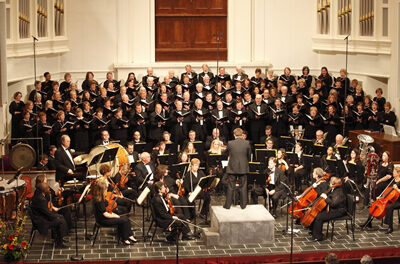Very few empty seats were in sight in the town’s charming and intimate Sunrise Theater for the fourth and final program of the 30th Season of the Classical Concert Series sponsored by the Arts Council of Moore County. The rising international Modigliani String Quartet was formed in 2003 and has racked up an impressive array of awards including the highly prestigious Young Concert Artists Auditions in New York in 2006, which has allowed them to regularly tour in the U.S. Their second CD, which featured Haydn, was released in 2008 and won several prizes including the “Grand Prix du Disque” from the Charles Cros Academy. Their third CD, featuring Mendelssohn’s Op.13, 80, and 81, was named “CD of the Month” by the German magazine FonoForum. The members of the quartet are violinists Philippe Bernhard and Loïc Rico, violist Laurent Marfaing, and cellist François Kieffer. Their imaginative program paired an early Beethoven quartet with choice rarities by J. C. Arriaga and Alexander Borodin.
Juan Crisóstomo Arriaga (1806-26) has been called the “Spanish Mozart” because he was a child prodigy whose great promise as a composer was cut short by a pulmonary infection ten days before his 20th birthday. The thirteen-year old Arriaga composed an opera, Los Esclaves Felices (The Happy Slaves) in 1820. His Symphony in D has occasionally been recorded as have the three string quartets composed around 1821-23. None of his compositions reflect anything Spanish or his native Basque region. His works reflect the contemporary European style of late classical Mozart and the early Romanticism of Beethoven. The Third Quartet in E-flat is the most technically advanced and interesting of the set. The Modigliani’s notes describe the first movement as having “a broad theme punctuated at intervals by a martial, dotted rhythm used extensively in the development” with the interplay of “rising and falling scale passages” between the violins and cello. The second movement, entitled “Pastorale,” a gentle serenade metamorphoses into a stormy section. A graceful minuet is followed by a “scintillating rondo” bursting with energy and its cunning scoring deploying exciting triplets for all four instruments.
The first movement of Beethoven’s first Quartet in F, Op. 18 is dominated by “an intense development of its little opening motive, which is played no less than 102 times.” The second movement has a gorgeous “long main theme with a throbbing accompaniment.” The composer seldom surpassed the beauty of this movement in his later works. The witty third movement exploits uneven rhythms and “phrases of odd lengths.” A typical, playful rondo brings the quartet to an end.
Alexander Borodin’s (1833-87) friends often hoped he would be ill! The great Russian chemist only devoted himself to composing during convalescence, which is why his opera Prince Igor was left incomplete. He was a member of the group of composers called The Five (or, The Mighty Handful) who were dedicated to creating a specifically Russian kind of music. This was an offshoot of the 19th century’s nationalist movement in Europe. Borodin’s String Quartet No. 2 in D (1881) is easily the most popular of the composer’s chamber music because it abounds in rich melodies and masterful writing for strings. The main theme of the third movement, a shimmering nocturne, has taken a life of its own in string orchestra arrangements, and in the musical Kismet as “And This is My Beloved.”
The Modigliani String Quartet played with great technical finesse and fine sense of style. The balance between players was superb as was their intonation. Dynamics were beautifully judged. Their articulation in the fastest passages, such as the finale of the Arriaga, was flawless. In the Borodin, the players conjured up a full, warm sound that never became saccharine. The Beethoven was a remarkably mature conception for so young an ensemble. A plethora of remarkable pizzicatos and bowings abounded in the Quartet’s encore. It was a transcription of a Polka drawn from Age of Gold ballet by Dmitri Shostakovich. Its many humorous touches were a hit with the Sunrise Theater crowd who had already given rousing, well-earned standing ovations.











